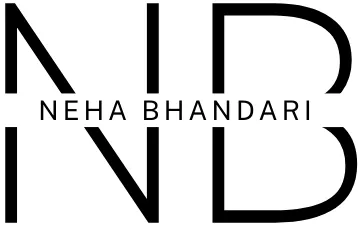
Lifestyle
As the Dalai Lama said, "The purpose of our lives is to be happy.”
And in today's world, how we live our life is a primary factor in helping us achieve that. Remember! it is never too late to begin.
"A lifestyle change begins with a vision and a single step". - Jeff Calloway
If you have the vision then I will show you the steps.
So go ahead and take the first step right now.
Food
The food you eat can either be
the safest and most powerful
form of medicine ....
or
the slowest form of poison ....
- Ann Wigmore
And remember,
The doctor of the future will no longer
treat the human frame with drugs,
but rather will cure and prevent diseases
with nutrition.
- Thomas Edison
Wellness
Wellness is considered a conscious, self-directed and evolving process of achieving
full potential. It is multidimensional and holistic, encompassing lifestyle,
mental and spiritual well-being,
and the environment.
Wellness begins where the mind, body and soul intersect.
The physical body is just a reflection of the health of the mind and soul.
One cannot see the benefits of true health
unless all three are in balance.

Smart Eating Tips For A Healthy Ramadan
I always remember the month of Ramadan very fondly as it brings back memories of all my friends, colleagues and acquaintances, when I was working in the Middle East, who fast during this time. What also comes to my memory is the number of people who would visit the ER with gastrointestinal problems, elevated blood pressure, high sugar levels, and of course dehydration and hypoglycemia due to the long hours of fasting.

Although some problems just come with the process of fasting, especially a waterless fast; like fatigue, low sugar levels, and dehydration, there are some that can be totally avoided if we eat smartly. So I am going to share a few tips here which I hope will be of value to my Muslim friends in this holy month of fasting.
Pre- Dawn
Do not skip the pre-dawn meal which is also known as Suhoor or Sehri.
In the pre-dawn meal eat slow-digesting carbohydrates like whole wheat, oats, rice, or any other whole grains you usually eat, to keep yourself full longer and to keep your energy levels at a constant level for a longer time instead of giving you a sugar slump within a couple of hours followed by extreme hunger and hypoglycemia.

Along with a slow-digesting carbohydrate, eat fresh fruit which gives you natural sugars along with the much-needed micronutrients, fiber, and water content. Do not forget to hydrate yourself with just plain water, as much as you can consume, during the Suhoor to keep yourself hydrated through the day.
Avoid caffeine and too much salt in this meal. If possible consume a handful of nuts since they pack in a lot of calories in just a few pieces and do not overfill your stomach early morning.

If you can get in a protein source early morning like eggs or chicken that would be great otherwise you can make up for it after Iftaar i.e. the meal after breaking the fast.

Another alternative for early morning protein is a scoop or 2 of protein powder if you are very careful about your calorie intake and have a fitness regime to think about. You can have it as it is or blend it along with one fresh fruit and some veggies and oats. That way it can become a complete meal in itself.
During The Day
During the day keep your exertion to a minimum and schedule any workout for after the fast in the evening.
Take all your medication after consultation with your doctor as per the change in eating schedule. Do not continue to take them as you would during the other months as the food and sleep cycle have changed completely and so should the medication especially for diabetes.
In case you tend to suffer from migraine or normal headaches during the first few days of fasting, it is advisable to take your medication for either problem, during Suhoor. In case of normal headaches take a sustained release tablet which gets released slowly over time in your system to keep you headache-free for a longer period. Once you get used to fasting you can stop having the medication for headaches but continue taking your medication for migraine as prevention.

If you have a heart ailment or are pregnant or lactating kindly fast after consulting your doctor.
Breaking the Fast
The fast traditionally is broken with laban (a thick drink made up of fermented milk, similar to yogurt but runnier) along with dates and olives, as told to me by my friends.

This is the best kind of meal after a long day of fasting as it is soothing to the digestive system, builds up the good bacteria which will help in digesting further meals of the day.
The dates are an immediate source of energy and the olives a latent source of energy. This gives your body time to prepare itself for the later meals without putting undue pressure on the digestive or circulatory system.

Care should be taken not to eat too much, too quickly while breaking the fast as that can lead to immediate gastric discomfort. Also, do not eat fried foods or high sugar drinks at this time. It will spike up your sugars in the bloodstream almost immediately. The fried foods can cause sudden acidity or colic.
It is better to just consume plain water while breaking the fast or infused water (water with slices of cucumber, lemon, mint, strawberries, etc) to replenish your micronutrients and prevent dehydration. Another healthy option would be fresh fruit juice which will give immediate energy and will be easy on your digestive system.

The main fast-breaking meal is the Iftaar which closely follows the fast-breaking ritual. This is always a lavish affair with a lot of food laid out in houses or parties. This should be considered a proper meal or snack which should again have all the ingredients of a normal meal which are whole grains, protein, healthy fats along with a lot of vegetables and/or fruits.

Care should be taken to eat slowly and chew your food well. Not chewing your food well will end up making you overeat that too very quickly resulting in gastro-oesophageal reflux disease, causing acidity, belching, abdominal discomfort, etc. You will also end up taking in a lot more calories than necessary.
The tendency to eat a lot is due to the presence of a lot of food in front of you visually along with the hunger cues and the anxiety the mind is feeling to eat it all. Change the narrative to your mind, telling it that you don’t have to eat all of it. You can satiate your hunger and taste buds while still picking up things to eat which will benefit your body and leave the rest.

Last meal before sleeping
Try to eat another light meal or snack before sleeping so that you can consume the required calories of the day.
Eat it at least an hour before sleeping and if possible 2 or more hours earlier to aid digestion of dense foods.
It could be a light snack like salad and soup or a light meal with protein, carbs, and healthy fats, or a snack with fresh fruit and nuts.
Do not consume a sugary drink just before sleeping as it will disturb your sleep.
Other tips
Go for a workout or any form of exercise after a gap of an hour after the Iftaar when you are well-fed, satiated and the food has got some time to digest. That is why it is necessary not to overeat during the Iftaar.
Try to catch up for fewer hours of sleep during the night, sometimes during the day. Try to sleep at least 7-8 hrs in total. This will help you to get your necessary rest, keep your stress levels down, help prepare you for an upcoming workout and keep you energy levels up.

These tips will keep you healthy and energetic throughout the month of Ramadan and will not let you go way off course when it comes to calorie intake and overeating.
Eat smart and eat up to 80% full. That is the best cue to use in every meal to know when to stop eating. Eat slowly and chew your food well to get maximum nutrient absorption and to avoid abdominal discomfort while eating after a long day’s fast.
Here’s wishing all my friends and colleagues “Ramadan Kareem”. May this holy month fulfill all your wishes while keeping you fit and strong always.
If you like this post, please leave a comment. To get in touch with me click here.
© Neha Bhandari Rao | Privacy Policy | Terms